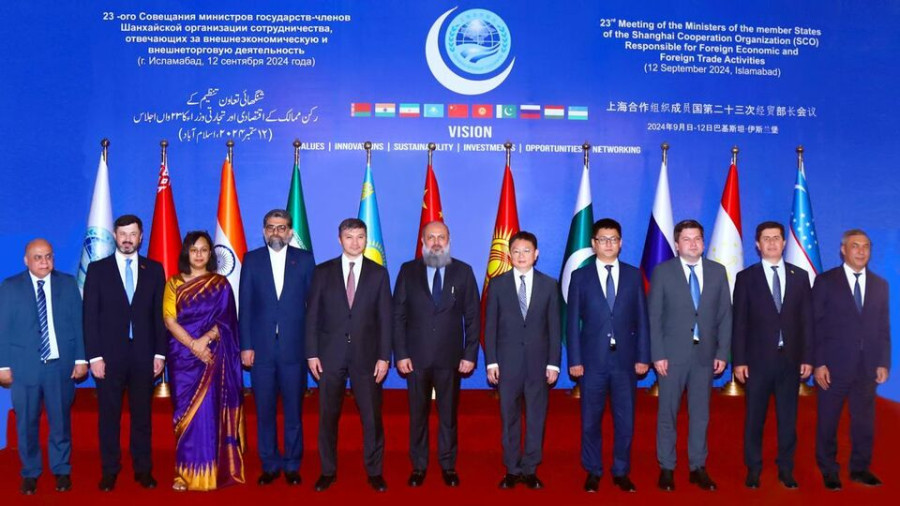Columns
Relevance of SCO amid geostrategic flux
Recognising SCO's relevance is essential in combatting transnational crimes.
Smruti S Pattanaik
The 23rd meeting of the Shanghai Cooperation Organisation (SCO) Council Heads of Government was held in Islamabad (Pakistan) on October 15-16, 2024. This meeting is important as countries constantly align and realign their interests, trying all opportunities to cooperate while avoiding strategic entanglement in great power rivalry.
The SCO, which emerged and entered into force in 2003 in the post-Soviet space, has expanded over time. Originally mooted by China and Russia to counter Western strategic influence in the Central Asia and Eurasian region, it was designed as a geo-strategic organisation to succeed the Shanghai Five formed in 1996. Its focus was on countering the ‘three evils’—terrorism, extremism and separatism. The organisation later expanded, including India and Pakistan as its members in 2017.
It is now a regionally anchored multifaceted cooperation with a 10-member organisation responsible for playing a key role as regional multilateralism becomes the norm in international politics. There are three observer countries and 14 dialogue partners, including Nepal and Sri Lanka. India has strongly advocated ‘reformed multilateralism’ and has longstandingly advocated UN Security Council reform. It also emphasises that member states must demonstrate commitment to the SCO Charter rather than cherry-picking issues.
Enhancing economic cooperation
Initially, the organisation focused on economic cooperation and established transport linkages to bolster trade and economic ties. Except for India, all other member states are part of China’s ambitious Belt and Road Initiative (BRI). India continues to emphasise that any transport corridor requires respect for territorial integrity and sovereignty. China’s economic push to the Central Asian Region, at times, has made the Russians uncomfortable. However, given the dynamics of the West, mainly the United States’ approach to both Russia and China, which is believed to be a containment strategy, has brought the two countries closer in the strategic realm. In this context, the SCO is seen as a vehicle for expanding economic relations with an underlying strategic content.
India, which has a deeper economic interest, is also concerned about terrorism and extremism that branches out of this geo-political space. It can potentially destabilise India’s efforts to advance the ‘Connect Central Asia policy’ of 2012 and the proposed International North South Transport Corridor (INSCTC) to connect to the larger Eurasian region. India’s access to Central Asia has been through Iran, where it has invested in the Chahbahar Port, a strategic gateway to enhance its economic engagement with the Eurasian region.
According to media reports, the SCO countries possess “25 percent of the world's oil reserves, over 50 percent of the world's gas reserves, 35 percent of the world's coal reserves, and roughly 50 percent of the world's known uranium reserves”. India has emphasised collaborative connectivity, which includes industrial cooperation to enhance competitiveness and expand labour markets, micro, small and medium enterprises collaboration and access to affordable pharmaceutical capabilities. Though Pakistan emphasised the ‘SCO connectivity framework’ in the recent summit, it has remained a major stumbling block in allowing India overland connectivity to Central Asia and Afghanistan through Pakistan due to geopolitics and regional rivalry.
Evolving strategic space
The emergence of the Central Asian Republic for the first time provided the US with a window of opportunity to expand its geo-strategic influence over this region. However, Russia was extremely careful in nurturing its geo-strategic space. It did not want the Central Asian Republics to emerge as a challenge to Russia’s hegemonic presence and influence in the region. The Collective Security Treaty Organisation (CSTO) emerged as a forum to have a coordinated effort to deal with security challenges confronting the region. Nonetheless, Russia’s war with Ukraine has limited its ability to come to the rescue of other countries in the region, especially Armenia, in its border conflict with Azerbaijan. This has provided Beijing with an opportunity to step up security cooperation. In May 2023, it convened the first China-Central Asia summit in Xi'an to cooperate on security matters.
The United States’ exit from Afghanistan allowed the SCO to emerge as an effective regional player. It has a Regional Anti-Terrorist Structure (RATS), SCO-led military exercises, a SCO Contact Group for Afghanistan and Cooperation on combatting drug trafficking. Afghanistan remains a major security concern for the SCO members, and RATS has been at the forefront of combating such security challenges.
Several terrorist and extremist groups operating out of Afghanistan pose a threat to the internal stability of the member countries, given the international terror network that has spawned to carry out attacks. International terrorist groups like Islamic State Khorasan (ISIS-K), Daish and al-Qaeda are entrenching their base in Afghanistan, which is believed to be under the patronage of the Taliban. Yet, the SCO has a cautious approach to Afghanistan. Some countries have preferred to engage the Taliban to deal with terror threats. The recent attacks in Moscow and Pakistan illustrate why engaging Afghanistan is important for some member states. Anti-terrorism Interaction-2024 joint exercise of the SCO member states held in Northwest China's Xinjiang Uygur Autonomous Region also demonstrates the growing threat of terrorism.
Relevance of the SCO
Analysts have often differed on the relevance of the SCO from the member-country’s perspectives. In the post-Cold War period, such regional multilateral organisations mushroomed and were seen as forums to advance collective interest. The SCO needs to be taken into account in the larger geopolitical context. The competitive interests of member countries certainly hinder the potential of any multilateral organisations, as there is a balancing game when granting membership to certain countries. However, it is important to recognise the relevance of such organisations, especially in combatting transnational crime.
The SCO’s relevance as a Eurasian organisation is poised to further its economic interest through its connectivity projects and collaboration among private corporate players by providing a conducive environment to invest while dealing with larger security issues arising from terrorism threats. The organisation would remain relevant as a geopolitical and geo-economic vehicle to allow member states to pursue their common interests in an era of strategic flux.




 29.12°C Kathmandu
29.12°C Kathmandu















